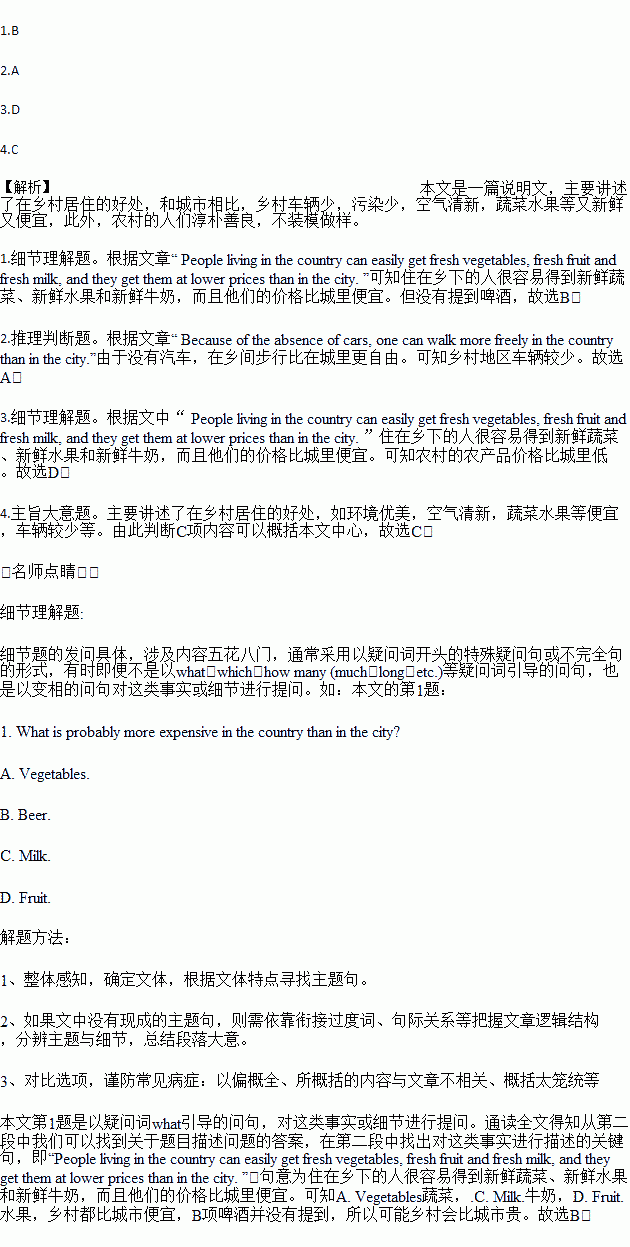题目内容
People living in the country enjoy several advantages that people living in the city cannot enjoy.
They are in close contact (接触) with nature. They make friends with trees and stones. They breathe fresh air. They fight with strong winds. They listen to the song of birds. This contact with nature is good for health. There are many diseases that are common in the city, but are not to be found in the country, For example, near---sightedness is almost unknown to country people. Because of the absence of cars, one can walk more freely in the country than in the city. There are no rules of the road nor traffic signs to obey. People living in the country can easily get fresh vegetables, fresh fruit and fresh milk, and they get them at lower prices than in the city. Country life is economical (节俭的) in other ways, too. There are practically no temptations to waste money.
Country people are mostly honest. They say what they mean, and make and keep promises with sincerity (诚意). They do not put on air (摆架子). They do not pretend to have those ridiculous (荒谬的) manners which are necessary in what we call polite society.
1.What is probably more expensive in the country than in the city?
A. Vegetables.
B. Beer.
C. Milk.
D. Fruit.
2.What is NOT true of country life?
A. The traffic accident rate is very high in the country.
B. Living in the country saves one a lot of money.
C. Country people enjoy better health than the city people.
D. Country people are honest.
3.Which of the following statements is true according to the passage?
A. People living in the country enjoy no advantages.
B. People living in the city are in close contact with nature.
C. People living in the country suffer from more diseases than those living in the city.
4.Which of the following would be the best title for the passage?
A. The Disadvantages of Living in the Country.
B. The Expenses of Living in the Country.
C. Country Life.
D. Healthy Country People.
 金博士一点全通系列答案
金博士一点全通系列答案

